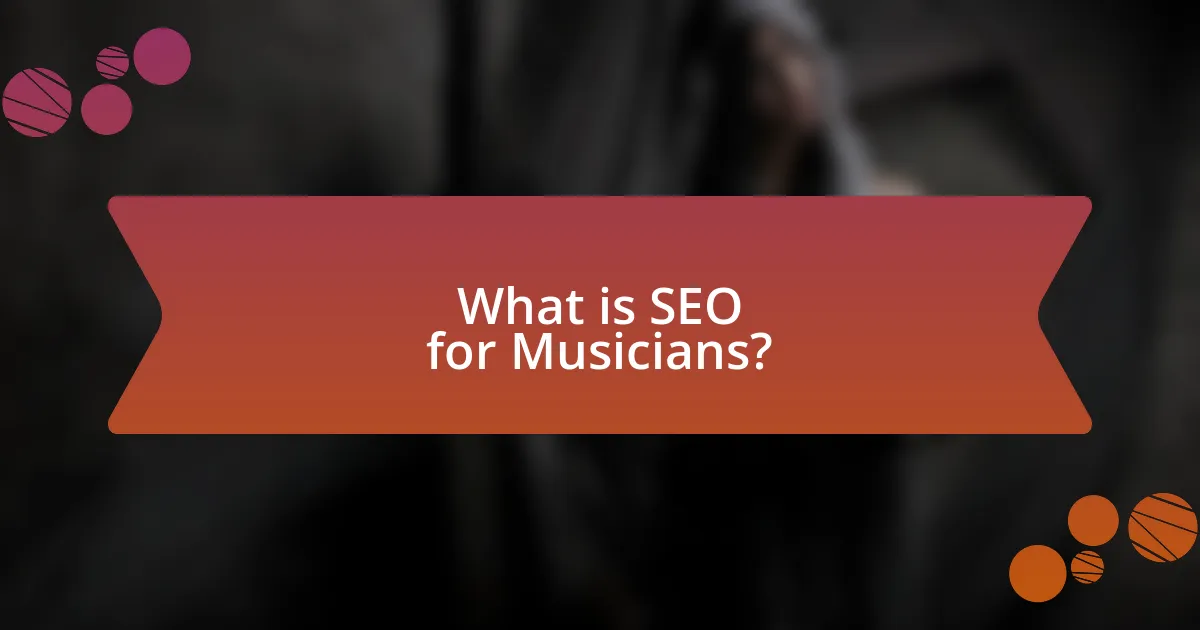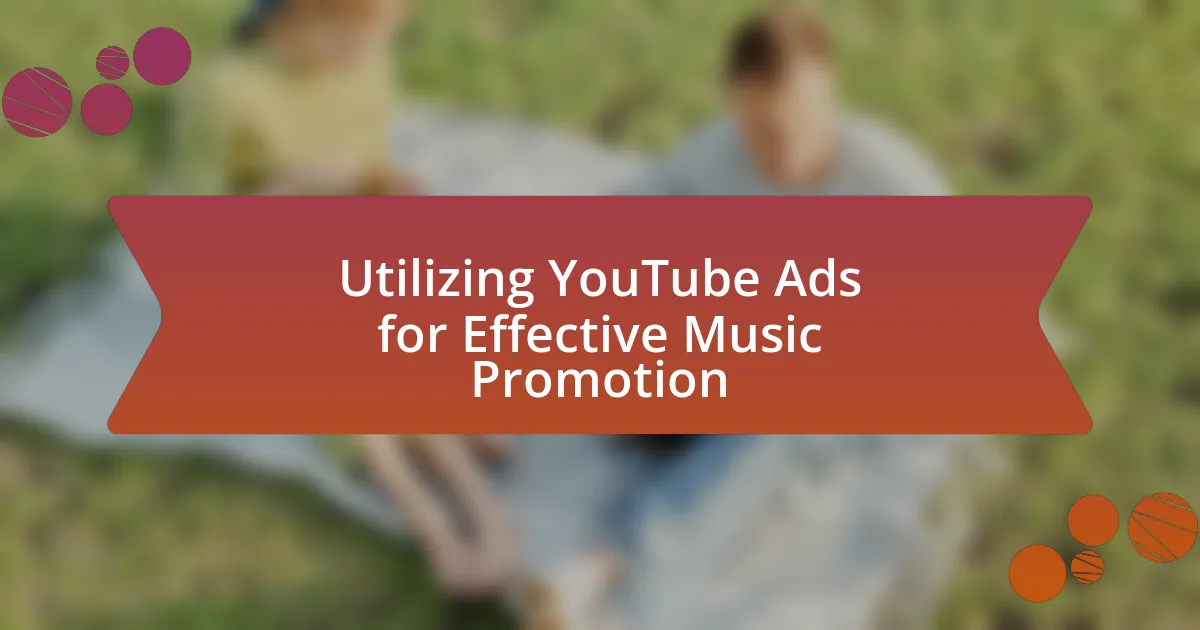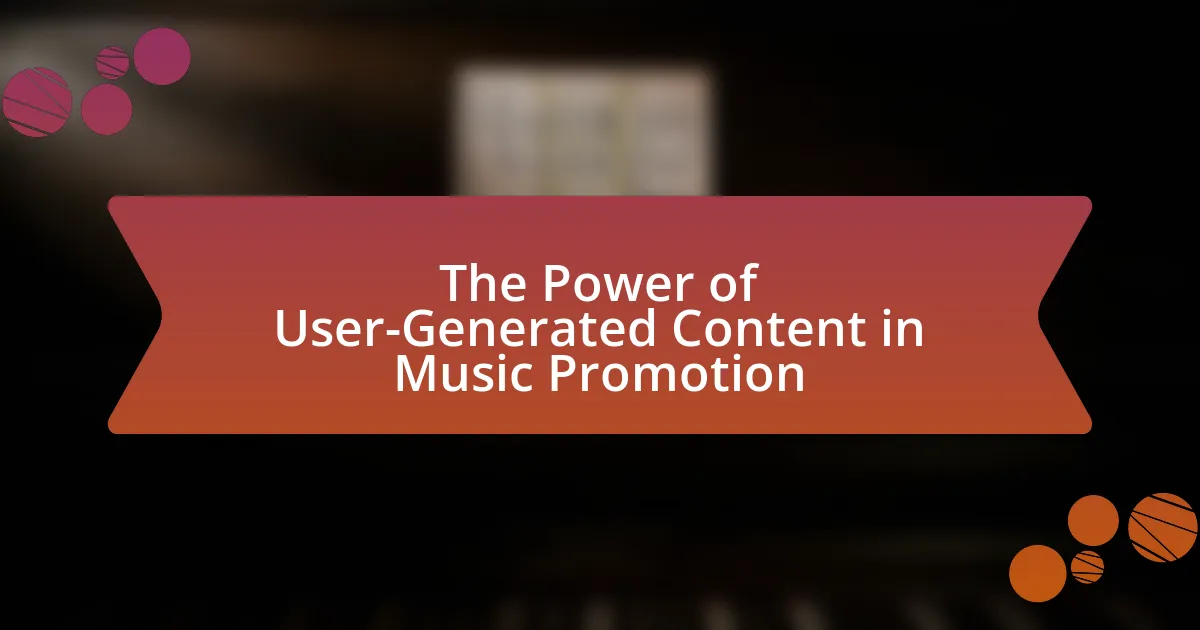SEO for musicians involves optimizing an artist’s online presence to enhance visibility in search engine results, utilizing strategies such as keyword research, content creation, and link building tailored to the music industry. Key elements include keyword optimization, quality content, mobile optimization, and effective social media use, all of which contribute to improved search rankings and audience engagement. The article also addresses common SEO challenges faced by musicians, such as competition and limited visibility, while providing practical tips and techniques for effective implementation of SEO strategies. Additionally, it highlights the importance of monitoring SEO performance and staying updated with industry trends to maintain and enhance online visibility over time.

What is SEO for Musicians?
SEO for musicians refers to the process of optimizing a musician’s online presence to improve visibility in search engine results. This involves strategies such as keyword research, content creation, and link building tailored specifically for the music industry. For instance, musicians can use relevant keywords related to their genre, songs, and performances to attract their target audience. According to a study by Moz, 70% of marketers see SEO as more effective than PPC for generating sales, highlighting the importance of organic search visibility for musicians seeking to grow their fan base and increase engagement.
How does SEO impact a musician’s online presence?
SEO significantly enhances a musician’s online presence by improving their visibility on search engines. When musicians optimize their websites and content for relevant keywords, they increase the likelihood of appearing in search results, which can lead to higher traffic and engagement. For instance, a study by HubSpot found that 75% of users never scroll past the first page of search results, highlighting the importance of ranking high. Additionally, effective SEO strategies, such as utilizing metadata, backlinks, and social media integration, can help musicians connect with their target audience, ultimately leading to increased fan engagement and potential revenue opportunities.
What are the key elements of SEO relevant to musicians?
The key elements of SEO relevant to musicians include keyword optimization, quality content creation, mobile optimization, and effective use of social media. Keyword optimization involves researching and incorporating relevant terms that potential listeners might use to find music, such as genre-specific phrases or artist names. Quality content creation focuses on producing engaging and informative material, including blog posts, videos, and music samples, which can enhance user experience and increase dwell time on the site. Mobile optimization ensures that the website is accessible and user-friendly on mobile devices, as over 50% of web traffic comes from mobile users. Effective use of social media helps musicians promote their music and connect with fans, driving traffic back to their website and improving search engine rankings. These elements collectively contribute to better visibility in search engine results, ultimately leading to increased audience engagement and growth.
How can SEO improve a musician’s visibility in search engines?
SEO can significantly improve a musician’s visibility in search engines by optimizing their online presence to rank higher in search results. By implementing targeted keywords related to their music, genre, and location, musicians can attract more relevant traffic to their websites. For instance, using tools like Google Keyword Planner can help identify popular search terms that potential fans are using. Additionally, optimizing website content, including meta tags, descriptions, and alt text for images, enhances search engine indexing. According to a study by HubSpot, 75% of users never scroll past the first page of search results, highlighting the importance of SEO in achieving visibility. Furthermore, creating high-quality backlinks from reputable music blogs and platforms can improve domain authority, further boosting search rankings.
Why is optimizing a music website important?
Optimizing a music website is important because it enhances visibility in search engine results, leading to increased traffic and engagement. When a music website is optimized for SEO, it improves its chances of ranking higher on search engines like Google, which is crucial since 75% of users never scroll past the first page of search results. Additionally, effective optimization strategies, such as using relevant keywords and improving site speed, can significantly enhance user experience, encouraging visitors to stay longer and explore more content. This ultimately contributes to greater fan interaction and potential revenue through merchandise sales or streaming.
What role does website optimization play in attracting fans?
Website optimization plays a crucial role in attracting fans by enhancing a musician’s online visibility and user experience. When a music website is optimized for search engines, it improves its ranking in search results, making it easier for potential fans to discover the artist. For instance, according to a study by HubSpot, 75% of users never scroll past the first page of search results, highlighting the importance of appearing prominently. Additionally, optimized websites load faster and are more mobile-friendly, which increases user engagement and retention. This combination of visibility and usability directly contributes to attracting and retaining fans.
How does a well-optimized website enhance user experience?
A well-optimized website enhances user experience by ensuring fast loading times, intuitive navigation, and relevant content. Fast loading times reduce user frustration and increase engagement; studies show that a one-second delay can lead to a 7% reduction in conversions. Intuitive navigation allows users to find information quickly, which is crucial for retaining visitors; research indicates that 38% of users will stop engaging with a website if the content or layout is unattractive. Relevant content tailored to user needs keeps visitors interested and encourages them to explore further, leading to longer session durations. Overall, these factors contribute to a more satisfying and effective user experience on a well-optimized website.
What are the common SEO challenges faced by musicians?
Musicians commonly face several SEO challenges, including limited online visibility, competition with established artists, and difficulty in optimizing content for search engines. Limited online visibility arises from the vast number of musicians competing for attention, making it hard for new or independent artists to rank well in search results. Competition with established artists often leads to a struggle for keywords and audience engagement, as popular musicians dominate search engine results. Additionally, musicians may find it challenging to optimize their content effectively, as they often lack the technical knowledge or resources to implement SEO best practices, such as keyword research, on-page optimization, and link building. These challenges hinder their ability to reach potential fans and grow their audience online.
How can musicians overcome competition in search rankings?
Musicians can overcome competition in search rankings by optimizing their websites with targeted keywords, high-quality content, and effective backlink strategies. By conducting keyword research, musicians can identify specific terms that potential listeners are searching for, allowing them to tailor their content accordingly. High-quality content, such as engaging blog posts, videos, and music samples, can improve user engagement and increase the likelihood of shares and backlinks. Additionally, building backlinks from reputable sites enhances domain authority, which is a critical factor in search engine rankings. According to a study by Moz, backlinks account for approximately 50% of ranking factors in search algorithms, underscoring their importance in overcoming competition.
What specific SEO pitfalls should musicians avoid?
Musicians should avoid keyword stuffing, which involves overloading web content with keywords in an unnatural way. This practice can lead to penalties from search engines, reducing visibility. Additionally, musicians must not neglect mobile optimization, as over 50% of web traffic comes from mobile devices; a non-responsive site can deter potential listeners. Another pitfall is ignoring local SEO, which is crucial for musicians performing in specific areas; failing to optimize for local searches can limit audience reach. Lastly, musicians should avoid using duplicate content, as search engines prioritize unique content, and duplication can harm rankings.
How can musicians effectively implement SEO strategies?
Musicians can effectively implement SEO strategies by optimizing their website content with relevant keywords, improving site speed, and utilizing metadata. By incorporating keywords related to their music genre, song titles, and lyrics into website content, musicians can enhance their visibility in search engine results. Additionally, ensuring that the website loads quickly improves user experience, which is a ranking factor for search engines. Utilizing metadata, such as title tags and alt text for images, helps search engines understand the content of the site better. According to a study by Moz, websites that follow SEO best practices can see a significant increase in organic traffic, which is crucial for musicians looking to reach a wider audience.
What specific techniques can musicians use for on-page SEO?
Musicians can use several specific techniques for on-page SEO, including optimizing title tags, using relevant keywords, and enhancing meta descriptions. Title tags should include the musician’s name and primary keywords related to their music genre, as search engines prioritize these elements for ranking. Incorporating relevant keywords naturally throughout the website’s content, such as in song descriptions and blog posts, helps improve visibility in search results. Additionally, crafting compelling meta descriptions that summarize the page content can increase click-through rates, as they appear in search engine results. These techniques are essential for improving a musician’s online presence and attracting more visitors to their website.
How should musicians optimize their website content for search engines?
Musicians should optimize their website content for search engines by incorporating relevant keywords, creating high-quality content, and ensuring mobile-friendliness. Relevant keywords should reflect the terms potential listeners use when searching for music, such as genre-specific phrases or artist names. High-quality content, including engaging blog posts, music descriptions, and artist bios, enhances user experience and encourages longer site visits, which search engines favor. Additionally, a mobile-friendly design is crucial, as over 50% of web traffic comes from mobile devices, and search engines prioritize sites that perform well on these platforms.
What are the best practices for using keywords in music websites?
The best practices for using keywords in music websites include conducting thorough keyword research, strategically placing keywords in titles, headings, and throughout the content, and ensuring that keywords are relevant to the music genre and audience. Keyword research tools like Google Keyword Planner can help identify popular search terms related to music, which should then be incorporated naturally into the website’s content to enhance visibility. Additionally, using long-tail keywords can attract more targeted traffic, as they often reflect specific user intent. For example, instead of just using “music,” a phrase like “indie rock music for relaxation” can be more effective. Furthermore, optimizing meta tags, alt text for images, and URLs with relevant keywords can improve search engine rankings. According to a study by Moz, websites that effectively use keywords in these areas can see a significant increase in organic traffic, reinforcing the importance of these practices in SEO for musicians.
What off-page SEO strategies are beneficial for musicians?
Off-page SEO strategies beneficial for musicians include building backlinks, engaging on social media, and collaborating with influencers. Backlinks from reputable music blogs and websites enhance domain authority, which improves search engine rankings. Engaging on social media platforms like Instagram and TikTok increases visibility and drives traffic to music websites, as these platforms have millions of active users. Collaborating with influencers can expand reach and introduce music to new audiences, further enhancing online presence. These strategies collectively contribute to improved search engine optimization for musicians.
How can social media influence a musician’s SEO efforts?
Social media can significantly enhance a musician’s SEO efforts by driving traffic to their website and increasing online visibility. When musicians share their music, updates, and engaging content on platforms like Instagram, Facebook, and Twitter, they create backlinks to their official website, which search engines recognize as a signal of credibility and relevance. Additionally, social media interactions, such as likes, shares, and comments, can improve a musician’s search engine ranking by indicating popularity and engagement. According to a study by HubSpot, 54% of social media users utilize these platforms to research products, including music, which further emphasizes the importance of a strong social media presence in boosting SEO.
What role do backlinks play in a musician’s SEO strategy?
Backlinks are crucial for a musician’s SEO strategy as they enhance website authority and improve search engine rankings. When reputable websites link to a musician’s site, it signals to search engines that the content is valuable and trustworthy. This is supported by a study from Moz, which indicates that backlinks are one of the top factors influencing search engine algorithms. Additionally, a higher number of quality backlinks can lead to increased organic traffic, allowing musicians to reach a broader audience and gain more visibility in a competitive market.
How can musicians track and measure their SEO success?
Musicians can track and measure their SEO success by utilizing tools such as Google Analytics, Google Search Console, and keyword tracking software. Google Analytics provides insights into website traffic, user behavior, and conversion rates, allowing musicians to assess which pages attract the most visitors and how users interact with their content. Google Search Console helps musicians monitor their site’s performance in search results, including keyword rankings and click-through rates, which are essential for understanding visibility. Additionally, keyword tracking software enables musicians to analyze their rankings for specific search terms over time, providing a clear picture of their SEO progress. These tools collectively offer concrete data that musicians can use to refine their strategies and improve their online presence.
What tools are available for monitoring SEO performance?
Tools available for monitoring SEO performance include Google Analytics, SEMrush, Ahrefs, Moz, and Google Search Console. Google Analytics provides insights into website traffic and user behavior, while SEMrush and Ahrefs offer comprehensive keyword tracking and backlink analysis. Moz focuses on site audits and page optimization suggestions. Google Search Console allows users to monitor site performance in Google search results, including indexing status and search queries. These tools are widely recognized in the industry for their effectiveness in tracking and improving SEO metrics.
How can musicians analyze their website traffic effectively?
Musicians can analyze their website traffic effectively by utilizing web analytics tools such as Google Analytics. These tools provide detailed insights into visitor behavior, including the number of visitors, page views, and the sources of traffic. For instance, Google Analytics reports that 53% of mobile site visits are abandoned if a page takes longer than three seconds to load, highlighting the importance of monitoring site performance alongside traffic metrics. By regularly reviewing these analytics, musicians can identify which content resonates with their audience, optimize their website for better engagement, and adjust their marketing strategies accordingly.
What are the best practices for maintaining SEO over time?
The best practices for maintaining SEO over time include regularly updating content, optimizing for mobile devices, and monitoring performance metrics. Regularly updating content ensures that the website remains relevant and engaging, which can improve search rankings. Optimizing for mobile devices is crucial, as over 50% of web traffic comes from mobile users, and search engines prioritize mobile-friendly sites. Monitoring performance metrics, such as organic traffic and keyword rankings, allows for adjustments based on data-driven insights, ensuring that SEO strategies remain effective. These practices are supported by studies indicating that consistent content updates and mobile optimization significantly enhance user experience and search engine visibility.
How can musicians stay updated with SEO trends?
Musicians can stay updated with SEO trends by regularly following industry blogs, attending webinars, and participating in online forums focused on digital marketing. Websites like Moz, Search Engine Journal, and Neil Patel’s blog provide valuable insights into the latest SEO strategies and algorithm changes. Additionally, subscribing to newsletters from these sources ensures that musicians receive timely updates directly in their inbox. Engaging with communities on platforms like Reddit or Facebook groups dedicated to music marketing can also facilitate knowledge sharing among peers.
What resources are available for musicians to learn about SEO?
Musicians can access various resources to learn about SEO, including online courses, blogs, and books specifically tailored for the music industry. Websites like Coursera and Udemy offer courses on SEO fundamentals, while blogs such as Bandzoogle and CD Baby provide articles focused on SEO strategies for musicians. Additionally, books like “SEO for Musicians” by David M. Smith offer in-depth insights into optimizing music websites. These resources are designed to help musicians improve their online visibility and reach their target audience effectively.
What practical tips can musicians follow to enhance their SEO?
Musicians can enhance their SEO by optimizing their website with relevant keywords, creating high-quality content, and utilizing social media effectively. Incorporating keywords related to their music genre, location, and specific songs into website content, meta descriptions, and image alt tags improves search visibility. Regularly updating the site with blog posts, music releases, and news keeps content fresh and engaging, which search engines favor. Additionally, promoting music on social media platforms increases backlinks to the website, further boosting SEO. According to a study by Moz, websites with higher quality backlinks rank better in search results, demonstrating the importance of social media engagement for SEO enhancement.




